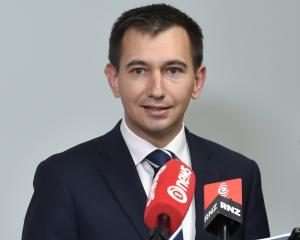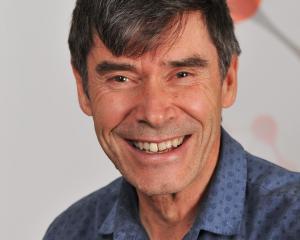
Prof David Haslam, who is clinical director of the United Kingdom's National Obesity Forum, was a keynote speaker at the Royal New Zealand College of General Practitioners conference held in Dunedin over the weekend.
As a GP himself, he shared ''strategies from the fat-fighting front'' which could help other doctors make a difference in the war against obesity.
He admitted being ''amazed'' at the extent of New Zealand's obesity after reading in The Guardian New Zealand was the third-fattest country in the world.
''I knew it was Mexico first; I knew it was United States second.
''I thought we [United Kingdom] had a fighting chance of being third because we are the biggest in Europe, but you really have a problem with obesity.''
His answers for how doctors could help obese patients were simple and centred on talking to patients about their problems and ''getting a foot in the door''.
He disputed the idea that talking to people about their weight was difficult because it was impolite.
It was the ''easiest thing in the world'' compared with some of the other information doctors had to share with patients, such as telling people they had cancer or their loved ones had died.
When GPs did get their foot in the door it could make a tremendous difference, as just a little weight loss made a massive difference to people's chances of getting diabetes or having heart disease.
GPs could not change the environment of fast food and sugary drinks which contributed to obesity, but could make a difference to individuals.
''We are looking at the obesity epidemic one person at a time and we can only do that.''
Doctors should not be overly reliant on body mass index (BMI) and should instead use their ''eyeballs'' - if someone looked fat, it meant they probably had a problem.
He highlighted his points by sharing the story of Percy, who got him interested in obesity as a trainee doctor.
Percy, a heavily overweight man, was a regular at the local GP practice and ''dropped dead'' after walking out to the car park from his last visit.
The senior partner said there was nothing they could have done to save him.
Prof Haslam agreed nothing could have saved him on that last visit.
''But I couldn't help thinking what if he had've done something different last week, or last month, or last year or 10 years ago.
''He'd never had his blood pressure taken.''












